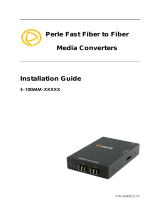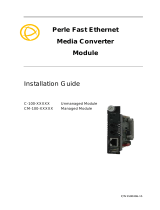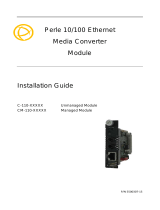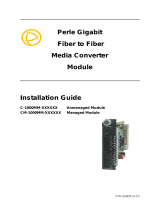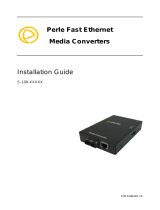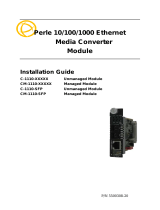
Fast Ethernet Fiber to Fiber Media Module – Installation Guide
11
Troubleshooting
General
• Ensure the module is correctly seated to the backplane in the
MCR chassis. The PWR LED should be on solid.
• Ensure all cabling is of the correct type and is in good working
order.
• Ensure both devices on either end of the fiber are compatible.
If using a simplex fiber connection, ensure that you have both
an Upstream (U) and Downstream (D) media module.
• For duplex fiber connections, ensure the RX and TX has been
reversed between the two media converter module.
No connectivity
If unable to get full connectivity with all DIP switches in the UP
position, these methods are recommended for troubleshooting.
Note: If troubleshooting a CM-100, setting the Auto-Config jumper
(J5) to SW will ensure the DIP switches are being read.
Method 1
1. Set the Link mode to Standard (SW1 – Down) on both media
converter module. Leave all other switches in the Up position.
2. Connect the near end device to the MM1 port. The LK1 should
be lit to indicate a good fiber connection. If the LK1 LED is not
lit, then check the fiber cable and the attached device.
3. Repeat step 2 for the MM2/SM2 port
4. Return the media module to the desired configuration.
Method 2:
The fiber connection can also be verified by configuring the
remote media module for loopback mode. The LEDs on both
media converter module should be lit. Data should pass through
the local module, over the fiber connection to the remote media
module. At the remote media module, the data will be looped back
and passed through MM2/SM2 transmit fiber link.
















